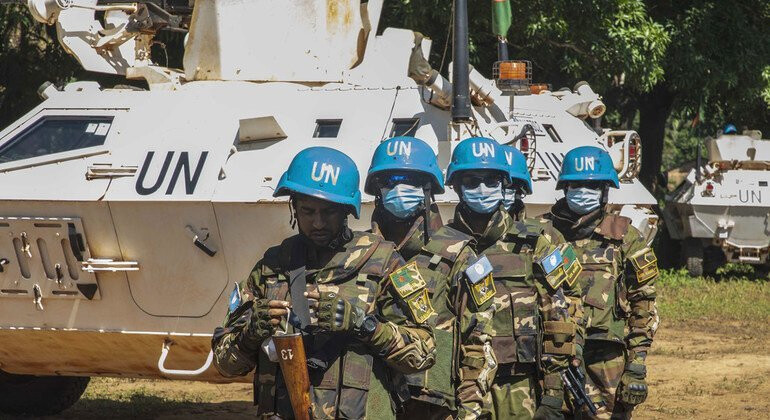
Bangui, Central African Republic – The United Nations has issued a stark call for accountability in the Central African Republic (CAR), revealing a disturbing pattern of severe human rights violations perpetrated by armed groups, notably Wagner Ti Azandé (WTA), which maintains ties to the national army.
A comprehensive report by the UN Human Rights Office and the UN mission in CAR, MINUSCA, details harrowing incidents in the Mbomou and Haut-Mbomou prefectures of Haut-Oubangui region. The report documents at least 24 deaths across two waves of coordinated attacks, occurring in October of last year and January of this year, with numerous victims subjected to summary executions.
The primary targets of these brutal attacks were Muslim communities and Sudanese refugees and asylum-seekers, underscoring the persistent ethnic and religious tensions that plague the CAR. According to Thameen Al-Kheetan, spokesperson for the UN High Commissioner for Human Rights, the documented violations extend beyond killings, encompassing sexual violence, including gang rape, forced labor, torture, and widespread looting of homes and businesses.
“These horrible crimes must not go unpunished,” Al-Kheetan emphasized, reiterating the UN’s commitment to collaborating with CAR authorities to uphold human rights and combat impunity.
The report specifically highlights the role of WTA, an armed group with direct links to the national army, and its predecessor, Azandé Ani Kpi Gbé, in orchestrating these atrocities. The UN High Commissioner for Human Rights, Volker Türk, has called for immediate clarification regarding the nature of the relationship between WTA and the CAR military, demanding full transparency in the group’s operations. Türk further asserted that if a clear delineation of ties is not possible, the group must be disarmed.
The CAR’s decades-long history of instability, marked by communal violence along religious and ethnic fault lines, has resulted in a humanitarian crisis of immense proportions. UN assessments indicate that approximately one in five CAR residents are displaced, either internally or across international borders. The conflict has also devastated critical infrastructure, including schools and hospitals, exacerbating the suffering of the civilian population.
In response to the escalating violence, MINUSCA has intensified its efforts to protect civilians and bolster the restoration of state authority in the affected regions. The UN remains committed to supporting the CAR in its pursuit of peace, justice, and human rights.
[Copyright (c) Global Economic Times. All Rights Reserved.]



























